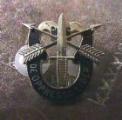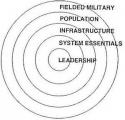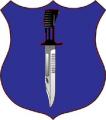Over the past 8 years I have served in 3 separate 4-Star Headquarters (Army Staff, PACOM/SOCPAC, and SOCOM), and have always been amazed at the level of intel product that has been requested, expected, provided, accepted.
Invariably it has been very very tactical in nature. Even if they looked at a broad area, they still focus on and talk about very tactical intelligence. Not that this is bad information, but it does tend to draw senior leaders down into the weeds that they grew up in and are comfortable with (plus it is sexy and fun) as opposed to much larger perspectives and issues that are the turf that these respective commands really need to be focused upon.
So, here is my question: WHAT exactly is strategic intelligence? and why is it so rarely asked for, and even more rarely provided?
Some thoughts on this as I work on some projects in my lane:
1. What types of Competitors are associated with a problem, probably laid out in 3 tiers from those directly engaged, those 1 degree of separation away, and those 2 degrees of separation away.
a. Who are the state actors?
1. Nuclear States
2. Non-nuclear States
3. Failing States
4. Criminal States
b. Who are the non-state actors working within these states and what are their relationships to the same and each other?
1. Quasi-State Competitors (LH, Hamas, etc)
2. Non-State Competitiors (AQ, Exxon, Red Cross, etc)
3. Insurgent Competitors (Taliban, MILF, etc)
4. Dissident Competitors (Green Peace, Individuals)
c. Of all of these, what are there stated and implied interests, and where are there points of shared interests and conflicting interests (goes to opportunities, risks, and predicting likely respones to various COAs)
These are things I think about, but get the 1,000 yard stare when I ask the intel guys about the same. Does anyone else have thoughts on what "strategic intelligence" should be?












Bookmarks